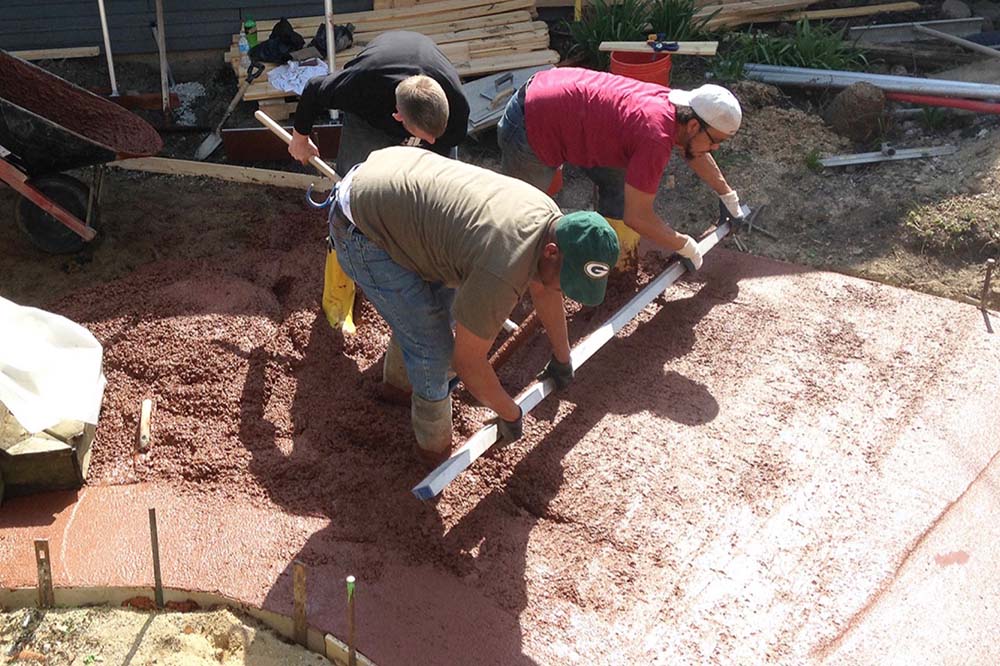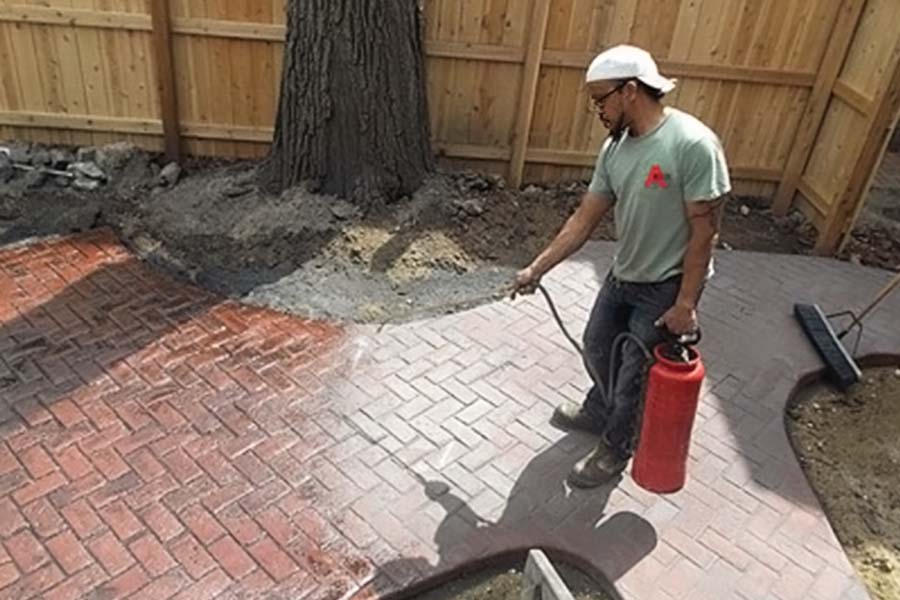
- Details
- By First American Capital Corporation
(Hales Corners, WI) — Turning a passion into a successful business is no small feat, but for Matthew Schofield, an enrolled member of the Keweenaw Bay Indian Community, the shift from social services to masonry was a natural evolution fueled by his love for the craft. Today, his company, Allen Remodeling, stands as a testament to resilience, adaptability and the power of mentorship.
“My grandfather was a carpenter, and I’ve always loved creating things,” Schofield said. “Masonry is rewarding because you can see, touch and appreciate. That’s why we call our team members ‘artisans’ instead of just craftsmen—we create works of art.”
From social services to masonry. Schofield began his professional career in social services, working with youth as part of AmeriCorps in the Milwaukee area. However, his deep-rooted interest in masonry never faded. When he sought a career change, an acquaintance offered him a position in his construction and masonry company. There, he honed his masonry craft, learned about concrete and construction, and gained valuable business and managerial skills.
The birth of Allen Remodeling. In 2008, Schofield felt the urge to forge his own path. He began developing a mission, vision and funding model for what would ultimately become Allen Remodeling. It wasn’t until 2010 that he was able to incorporate the business, initially operating it as a side venture while holding other employment.
By 2014, Schofield had built a strong network and solid reputation that enabled him to pursue Allen Remodeling full-time. His business was growing steadily—until the COVID-19 pandemic threw a wrench in his plans.

Adapting to challenges. Like many businesses, Allen Remodeling had to pivot quickly to adapt to the new reality. The pandemic’s restrictions forced Schofield’s team to rethink customer interactions and safety protocols. But amid the challenges, an opportunity emerged: the surge in demand for outdoor space development. Allen Remodeling shifted
its focus to landscape construction, outdoor kitchens, patios and similar projects. The pivot paid off, and business surged.
“My wife joined the company during this time to manage office operations, financials, insurance and communications,” Schofield said. “It took time to grow, but we adapted and thrived.”
As the business expanded, Schofield recognized the need for additional capital to reach the next level. However, traditional banks were reluctant to approve small loan requests. This led him to seek alternative funding sources, ultimately connecting with the American Indian Chamber of Commerce of Wisconsin (AICCW) and First American Capital Corporation (FACC).
Through these organizations, Schofield secured a combination of grants and loans that provided the necessary financial foundation for growth. More importantly, he gained access to invaluable mentorship and networking opportunities.
“Gary Mejchar from FACC has been a mentor to me, guiding me on how to secure projects and make strategic decisions,” Schofield said. “It wasn’t just about getting the money; it was about learning how to use it wisely.”
Looking ahead. With a strong foundation and a vision for continued growth, Allen Remodeling is positioned for long-term success. Schofield’s story is one of perseverance, adaptability and passion—a true inspiration for aspiring entrepreneurs looking to build something of their own, brick by brick.
Learn more. Experience the exceptional craftsmanship of Allen Remodeling! Whether you're planning a business or residential remodel or enhancing your outdoor space in Southeastern Wisconsin, we’re here to bring your vision to life. Visit allenremodelingwi.com or call 414-899-3372 today for a consultation or estimate.
Those inspired by Scholfield’s success story can learn more about FACC’s services at faccwi.org.
Help us defend tribal sovereignty.
At Native News Online, our mission is rooted in telling the stories that strengthen sovereignty and uplift Indigenous voices — not just at year’s end, but every single day.
Because of your generosity last year, we were able to keep our reporters on the ground in tribal communities, at national gatherings and in the halls of Congress — covering the issues that matter most to Indian Country: sovereignty, culture, education, health and economic opportunity.
That support sustained us through a tough year in 2025. Now, as we look to the year ahead, we need your help right now to ensure warrior journalism remains strong — reporting that defends tribal sovereignty, amplifies Native truth, and holds power accountable.
 The stakes couldn't be higher. Your support keeps Native voices heard, Native stories told and Native sovereignty defended.
The stakes couldn't be higher. Your support keeps Native voices heard, Native stories told and Native sovereignty defended.
Stand with Warrior Journalism today.
Levi Rickert (Potawatomi), Editor & Publisher
